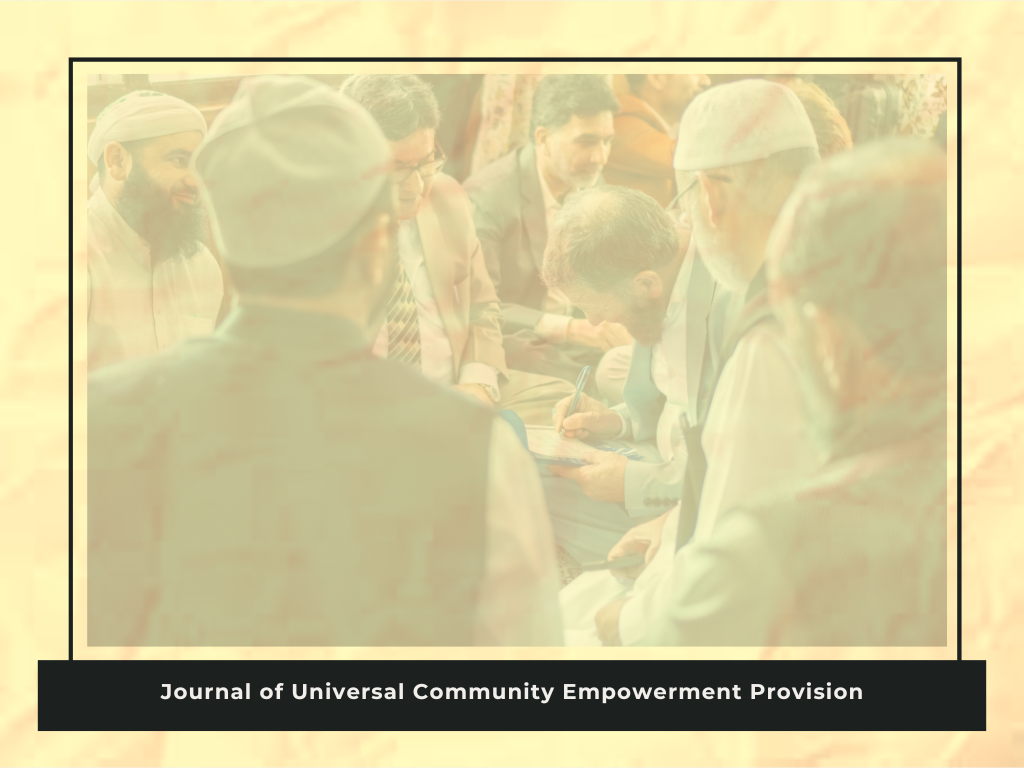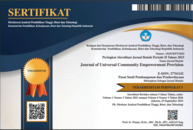The Implementation of Deliberation as a Form of Collective Decision in Islamic Law
DOI:
https://doi.org/10.55885/jucep.v4i3.461Keywords:
Islamic Law, Collective Decision, Justice, DeliberationAbstract
Deliberation is one of the main principles in Islamic teachings that functions as a means to achieve fair and wise collective decisions. In Islamic law, deliberation plays an important role in the decision-making process, both in the political, social, and legal realms. This study aims to examine in depth the concept of deliberation based on the arguments of the Qur'an and Hadith, and its application in the formation of Islamic law (sharia). Through a normative approach and analysis of classical and contemporary literature, this study highlights the importance of deliberation as a mechanism to ensure the participation of the people in the legislative process. In addition, this study also explores how collective decisions taken through deliberation are able to reflect justice, equality, and mutual agreement, in accordance with Islamic values. The findings of this study indicate that deliberation is not only relevant in the context of traditional Islamic law, but also has strong significance in modern legal and governance systems, especially in efforts to promote transparency and accountability.References
Alfano, M. (2022). Islamic law and investments in children: Evidence from the Sharia introduction in Nigeria. Journal of Health Economics, 85, 102660. https://doi.org/10.1016/j.jhealeco.2022.102660
Annisa, N. S. Y. (2020). Paradigma hukum Islam terhadap usia kawin perempuan (Master’s thesis, Universitas Hasanuddin).
Firdaus. (2019). Musyawarah dalam perspektif Al-Qur'an. Al-Mubarak: Jurnal Kajian Al-Quran & Tafsir, 4(2), 72–81. https://doi.org/10.47435/al-mubarak.v4i2.224
Faruqi, A. (2019). Konsep musyawarah dalam Al-Qur’an (Kajian tematik dalam penafsiran M. Quraish Shihab). Jurnal Ilmu Al-Qur’an dan Tafsir Nurul Islam Sumenep, 4(1), 141–207. https://ejournal.kopertais4.or.id/madura/index.php/alqorni/article/view/4497
Hamada, D., Nakayama, M., & Saiki, J. (2020). Wisdom of crowds and collective decision-making in a survival situation with complex information integration. Cognitive Research: Principles and Implications, 5, 48. https://doi.org/10.1186/s41235-020-00248-z
Hidayat, R., & Suwanto, S. (2020). Membumikan etika politik Islam Nabi Muhammad SAW periode Madinah dalam konteks perpolitikan Indonesia. Jurnal Sejarah Peradaban Islam, 3(2), 124–141. https://doi.org/10.30829/juspi.v3i2.4469
Hartono, H., & Nurhalim, N. (2019). Aliansi politik kebangsaan menurut Al-Qur’an dan Sang Maha Guru. Jurnal Ilmu Al-Qur’an dan Hadist, 2(1), 28–40. https://doi.org/10.35132/albayan.v2i1.46
Karim, H. A. (2019). Implementasi moderasi pendidikan Islam rahmatan lil‘alamin dengan nilai-nilai Islam. Ri’ayah: Jurnal Sosial dan Keagamaan, 4(1), 1–20. https://e-journal.metrouniv.ac.id/riayah/article/view/1486
Molinero, X., & Riquelme, F. (2021). Influence decision models: From cooperative game theory to social network analysis. Computer Science Review, 39, 100343. https://doi.org/10.1016/j.cosrev.2020.100343
Mårtensson, U. (2020). Deliberating religion, science, and progress in the global public sphere. Marburg Journal of Religion, 22(2), 1–30. https://doi.org/10.17192/mjr.2020.22.8291
Mubarok, A. A. (2019). Musyawarah dalam perspektif Al-Qur'an. Maghza: Jurnal Ilmu Al-Qur’an dan Tafsir, 4(2), 147–160. https://doi.org/10.24090/maghza.v4i2.3550
Mardani. (2015). Hukum Islam: Pengantar ilmu hukum Islam di Indonesia. Yogyakarta: Pustaka Pelajar.
Nurdin, A., Usman, B., & Samad, F. (2022). Tujuan hukum Islam untuk kemaslahatan manusia: Penerapan kaidah fiqhiyah dalam bidang ekonomi dan hukum keluarga. Ulumuna: Jurnal Hukum Keluarga Islam, 5(1), 41–55. https://doi.org/10.22373/ujhk.v5i1.14665
Rambe, T., & Mayasari, S. (2021). Komparasi antara konsep syura dan demokrasi dalam politik Islam. Jurnal Pendidikan, Sejarah, dan Ilmu-Ilmu Sosial, 5(1), 138–148. https://doi.org/10.30743/mkd.v5i1.3313
Rohidin. (2016). Pengantar hukum Indonesia. Yogyakarta: Lintang Rasi Aksara Books.
Sovacool, B. K., Bell, S. E., Daggett, C., Labuski, C., Lennon, M., Naylor, L., Klinger, J., Leonard, K., & Firestone, J. (2023). Pluralizing energy justice: Incorporating feminist, anti-racist, Indigenous, and postcolonial perspectives. Energy Research & Social Science, 97, 102996. https://doi.org/10.1016/j.erss.2023.102996
Sucilawati. (2020). The concept of shura in Islamic governance: Practice of shura during the Caliph Umar bin Khattab. International Journal of Politics and Sociology Research, 8(1), 18–32. https://www.ijobsor.pelnus.ac.id/index.php/ijopsor/article/view/29
Smeulders, B., Crama, Y., & Spieksma, F. C. R. (2019). Revealed preference theory: An algorithmic outlook. European Journal of Operational Research, 272(3), 803–815. https://doi.org/10.1016/j.ejor.2018.04.026
Waro, M. T. K. (2019). Makna mahar dalam Al-Qur’an (Kajian historis-antropologis). At-Tibyan: Jurnal Ilmu Alqur’an dan Tafsir, 4(1), 61–77. https://doi.org/10.32505/at-tibyan.v4i1.847
Zamharir, H., Noer, M., & Lubis, S. (2019). Khalifatullah Panatagama: Continuity & change in the practice of political Islam in modern Indonesia. Journal of Social Political Sciences, 1(1), 29–40. https://e-journal.unas.ac.id/jsps/article/view/8

Downloads
Published
How to Cite
Issue
Section
License
Copyright (c) 2024 Journal of Universal Community Empowerment Provision

This work is licensed under a Creative Commons Attribution-ShareAlike 4.0 International License.















